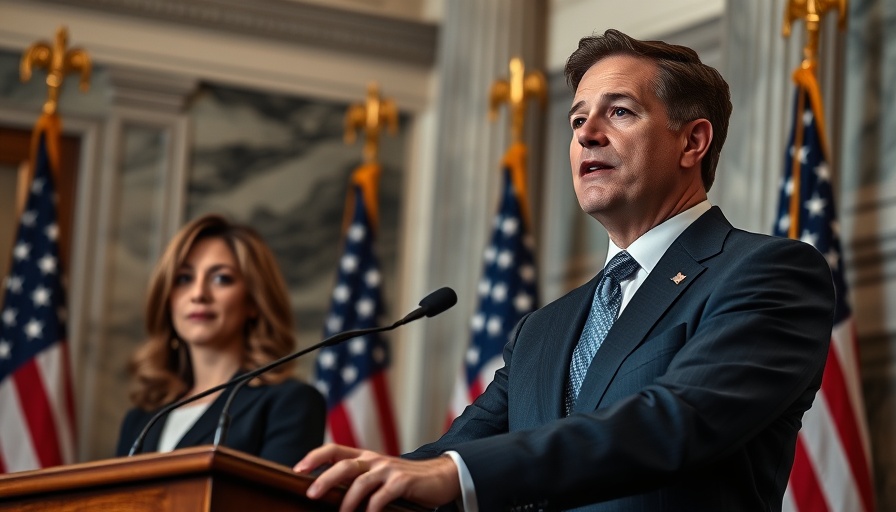
Escalating Demands for Transparency
In a surprising move, President Donald Trump announced on July 17, 2025, that he has instructed Attorney General Pam Bondi to pursue the release of grand jury transcripts pertaining to the controversial case against Jeffrey Epstein, a figure synonymous with scandal and allegations of sexual misconduct. This decision comes amid increasing pressure on Trump to confront lingering conspiracy theories related to Epstein that have persisted despite numerous denials.
Trump’s call for unsealing the transcripts follows a report from The Wall Street Journal revealing that a letter, notable for its suggestive tone and bearing Trump's signature, was included in a collection of letters Epstein had received for his 50th birthday years ago. The revelation provides fresh commentary on Trump's historical ties to Epstein, reigniting discussions surrounding their past interactions and the impact on Trump’s political base.
Trump’s Quest for Control of the Narrative
“Based on the ridiculous amount of publicity given to Jeffrey Epstein, I have asked Attorney General Pam Bondi to produce any and all pertinent Grand Jury testimony, subject to Court approval,” Trump expressed on his platform, Truth Social. Trump’s framing suggests a tactical approach to shaping the story surrounding Epstein, as he continues to grapple with electoral implications linked to the case.
Critically, Bondi responded in a social media update, confirming readiness to initiate the legal process to unseal the records promptly. This coordinated effort underscores the ongoing turbulence in the political arena, where the legacy of Epstein remains a contentious issue impacting perceptions of Trump’s administration.
The Ripple Effect of Epstein’s Shadow
The historical context of Epstein's wealth and connections within elite circles is ever-present, influencing public sentiment and media discourse. With Trump’s announcement coinciding with revelations regarding a letter from decades past, there’s a palpable tension among voters who seek clarity amidst uncertainty. As taxpayers and concerned citizens, knowing the details surrounding Epstein’s connections can help dismantle the various narratives—both conspiratorial and factual—circulating within the political landscape.
As Trump presses for transparency, taxpayers deserve to understand the implications of Epstein’s scandals, particularly given the extensive resources involved in investigations related to influential figures. The involvement of high-profile personalities and their connections to Epstein should be transparently explored to allow for strategic discussions around legal and social accountability.
Engaging in Active Discourse
Amidst the chaos surrounding this high-profile case, it’s essential for taxpayers to consolidate their voices and actively engage in discussions regarding judicial transparency and accountability. Understanding nuances in taxation and how government resources are allocated in investigations is vital, shedding light on potential avenues to lower taxes and advocate for smarter, fairer systems.
Ultimately, taxpayers must remain vigilant, urging their representatives to prioritize clarity and justice as legal moves unfold. Awareness leads to informed decisions in tax planning, including considerations around deductions and potential reforms that could benefit the broader public.
 Add Row
Add Row  Add
Add 




Write A Comment